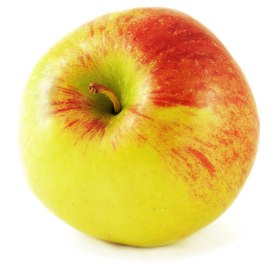For many people, the upcoming Christmas holidays will be a joyful time of celebration. But for recovering addicts, Christmas can be a difficult time of year packed full of stressful situations and tempting triggers. Uncomfortable social gatherings, a relaxed attitude towards celebratory drinking and a change in routine can mean that many addicts struggle during the holidays and into the new year. But with some preparation and self care it is possible to get through the holidays and give themselves the most important gift of all – their continued abstinence.
Prepare
Recovery is all about relapse prevention strategies and planning your recovery in manageable steps. On a practical level this can really help you maintain control during the holidays. Plan support meetings in advance and co-ordinate calls with your support network or ‘buddy’ during times that you anticipate could be difficult. Having an escape plan or a back-up excuse should you need to leave a stressful situation quickly can also be very helpful. Stress can creep in when you feel overwhelmed and out of control so planning ahead is the best way to combat this.
Social situations
One Canadian study indicates that the main complaint of those seeking emergency psychiatric treatment during the holidays is a feeling of isolation. For this reason it is important not to completely withdraw socially during the holidays as feelings of isolation may well be magnified. But be mindful of the social situations you put yourself in and never be afraid to excuse yourself if it becomes too much. With studies indicating that addiction often runs in families, there may be more than one recovering addict present and this in itself can spell confrontation. If you sense that there could be friction with relatives or if you feel uncomfortable being around alcohol then the logical decision would be to avoid those situations.
Self care
Being physically healthy will also improve your mental and emotional strength so practice self care and be kind to yourself during the holidays. This means eating a nutritious diet and getting plenty of exercise – even taking a brisk winter walk will get your feel-good endorphins pumping. Because Christmas can be such a hectic time it can also be helpful to practice meditation or yoga. This is a great way to free yourself from distractions and stresses of the festive period and promote harmony between the mind, body and soul in order to leave you feeling calm and refreshed.
Give back
For many recovering addicts, low self esteem can be a major problem. In the aftermath of their addiction they are faced with the reality of their behavior. During this period it can be tough for them to learn to love themselves again. Giving something back to those less fortunate is a wonderful thing to do at Christmas but for a recovering addict the process of helping others can be an important step in their own self forgiveness. Possibilities include volunteering at a homeless shelter, donating toys or clothes to the needy, even visiting an elderly or infirm neighbor.
Now working as a writer, Helen Graham spent many years working in health and social care, initially on a voluntary basis but then moving into more active roles. She now writes on health for a living, and continues to volunteer for a number of local mental health charities. She is married with two daughters.














A very helpful article, particularly the paragraphs about taking care of one’s physical well-being and the benefits of volunteer work. Personally, I think these two “efforts” can greatly enhance the quality of one’s sobriety and wish that more attention was given to these matters (somehow) in recovery fellowships. My one modification to this article would be in reference to the comments about attending uncomfortable events and having an exit plan in place. I think it is important that when I, either refuse or make brief attendance at an event, I be thoughtful and careful in my choice of words and actions with regard to the host and his/her invitation. For me, the dialogue about my attendance provides an opportunity to educate others about the disease of addiction and how we (recoverees) work a successful program of recovery. Thanks for sharing your lessons and insight, Helen. I look forward to reading more of your work.